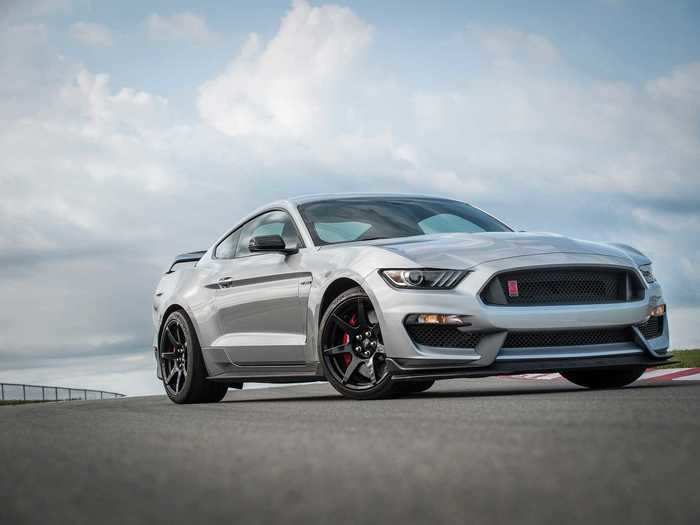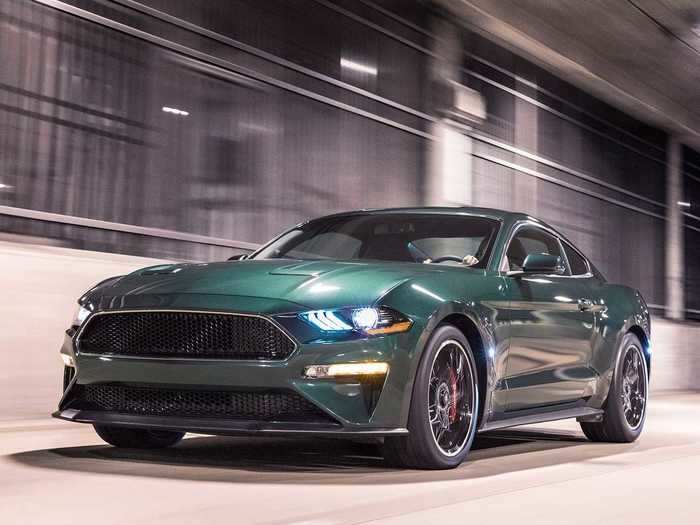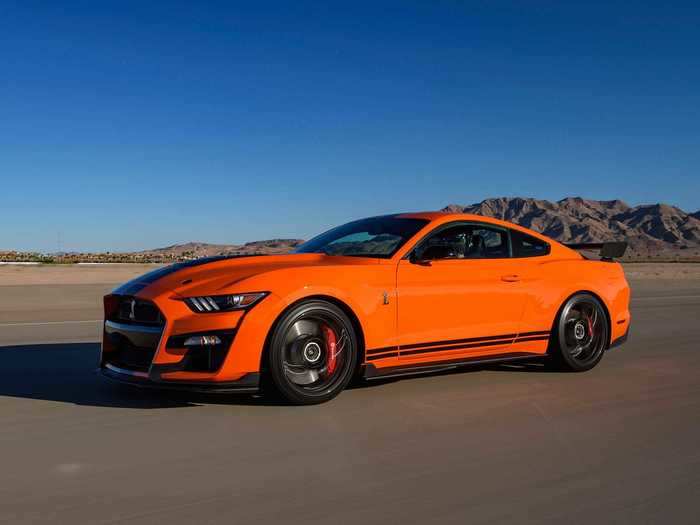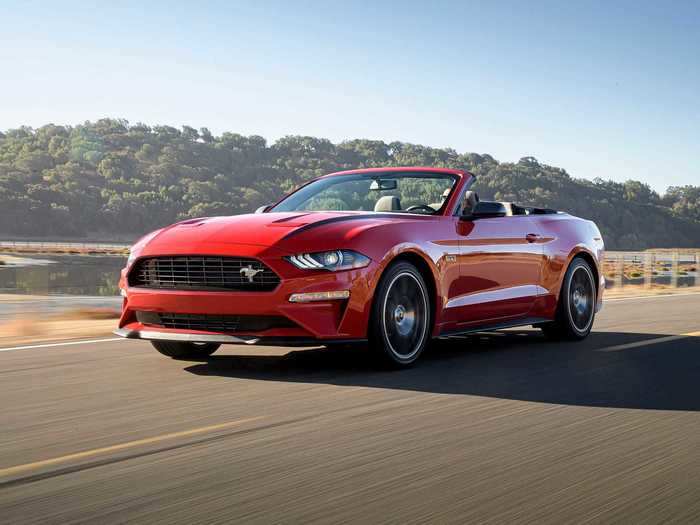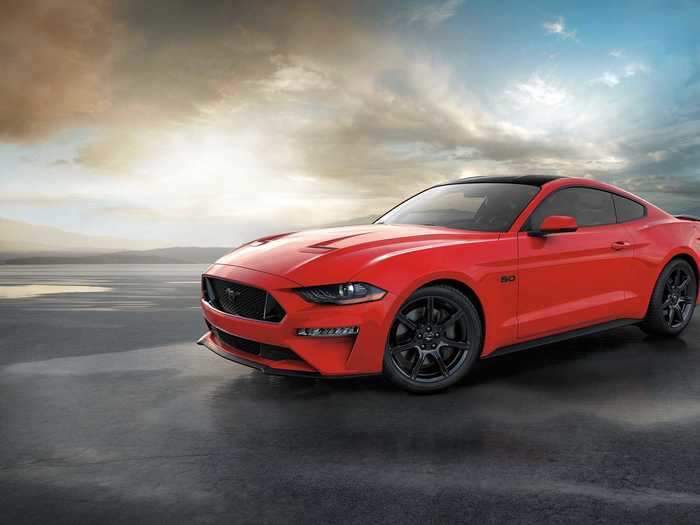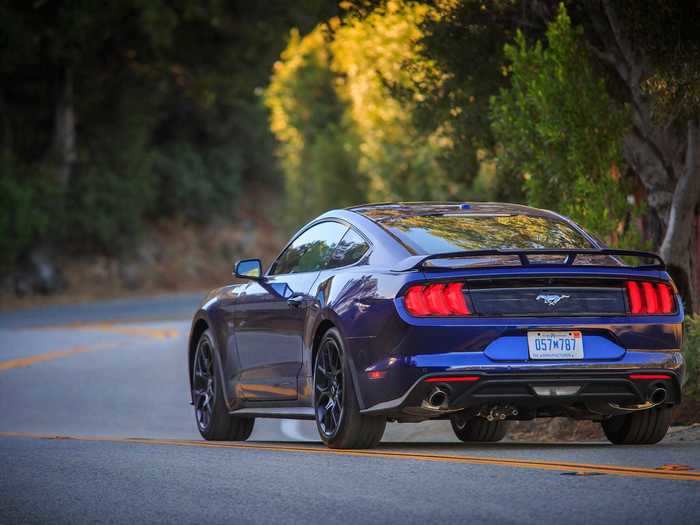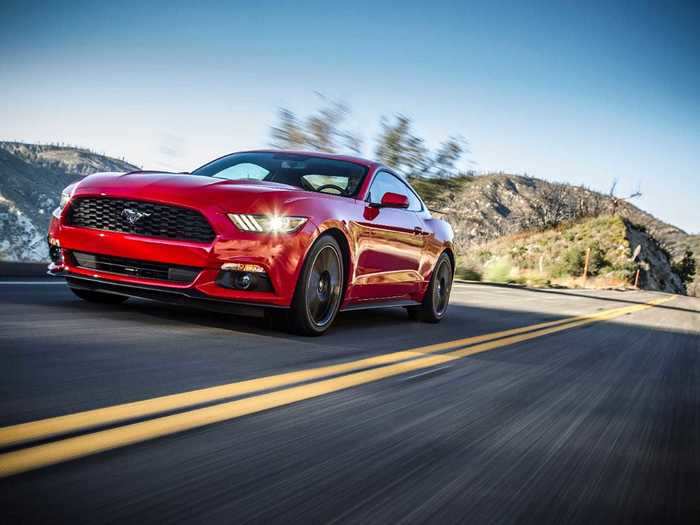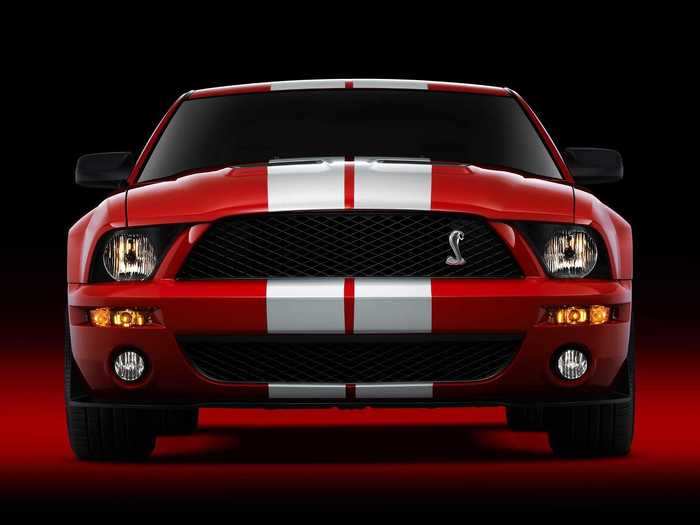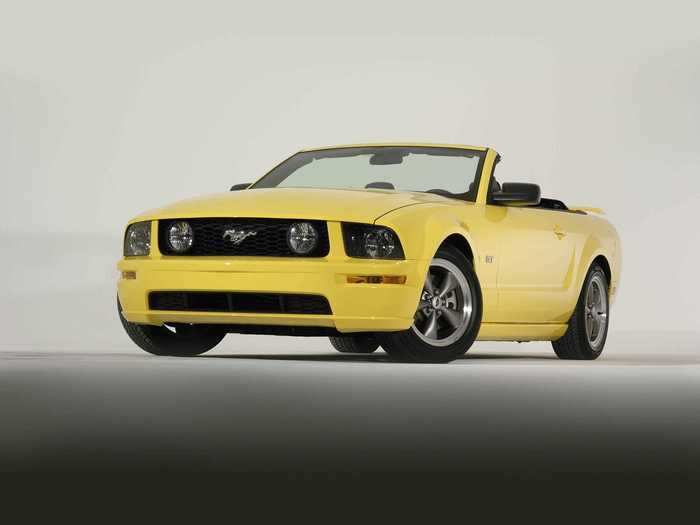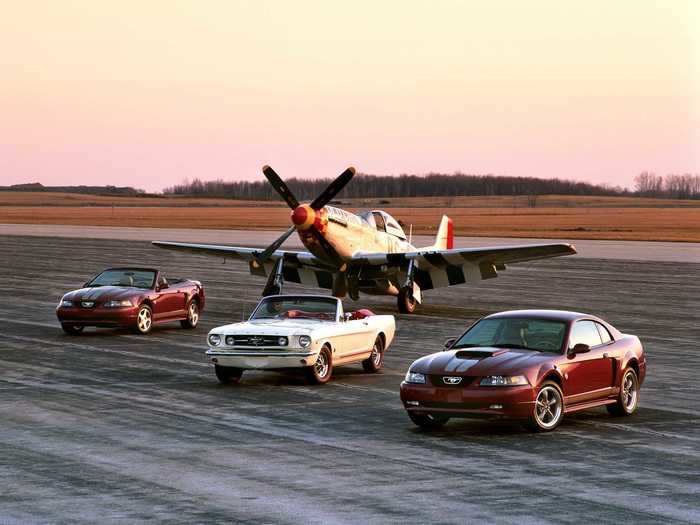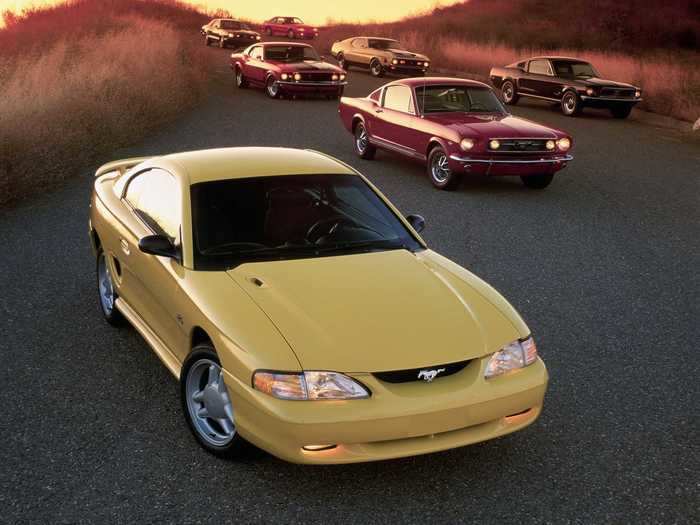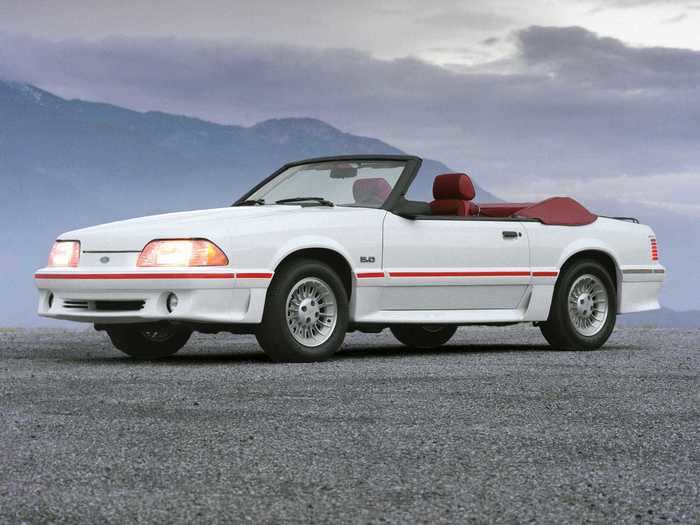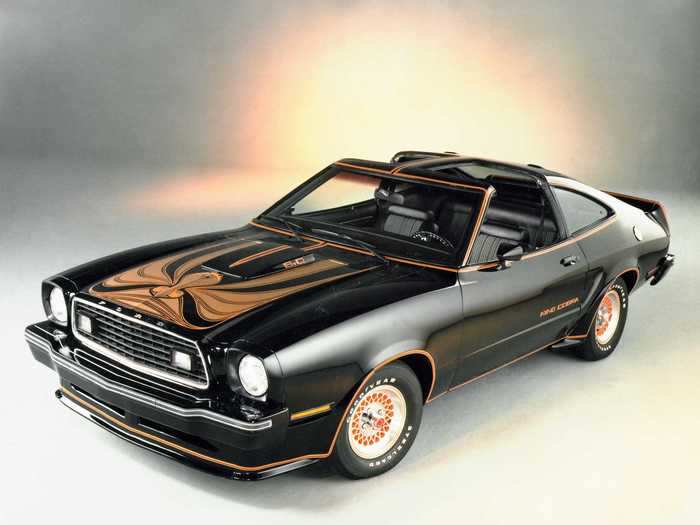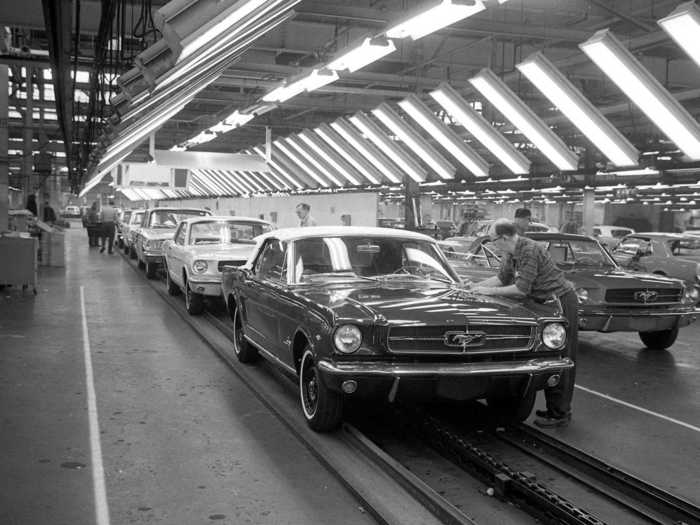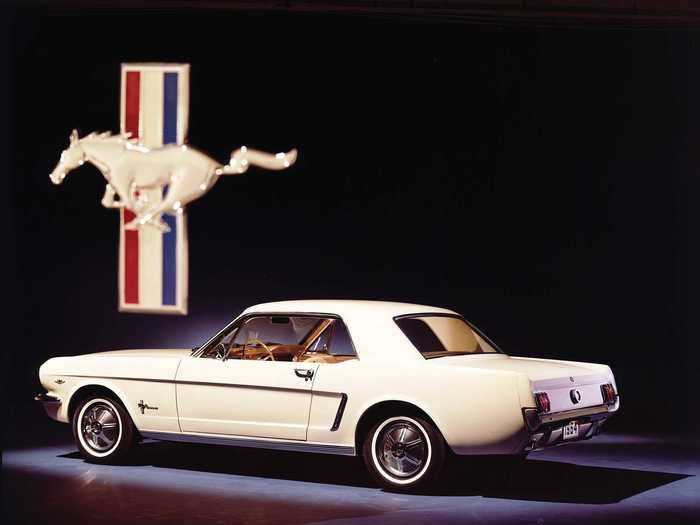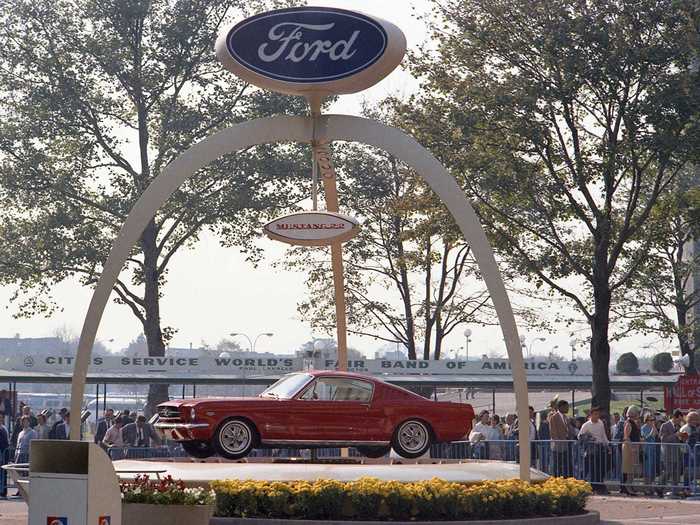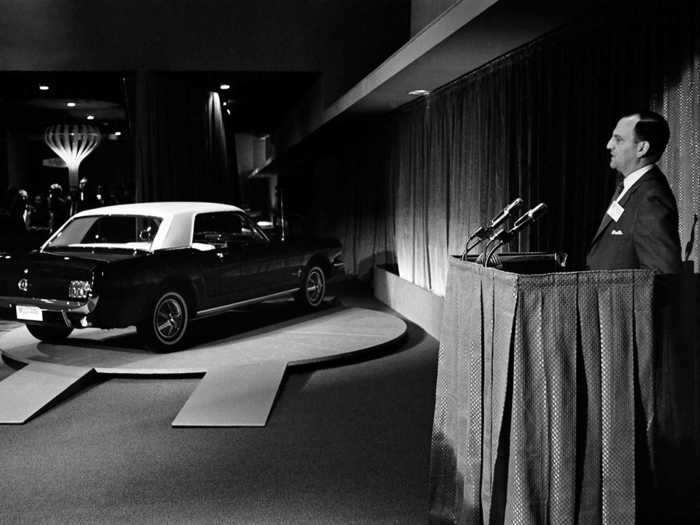Ford Mustang Shelby GT500.Ford
- The Ford Mustang debuted in 1964 as a sporty and cheap car for younger buyers.
- Throughout the years, the Mustang has undergone many changes.
- But the original "pony car" philosophy still holds true, even nearly six decades later.
- Visit Business Insider's homepage for more stories.
Nearly 60 years have passed since the birth of the Ford Mustang. In the decades since, the car has gone through six generations and is currently leading global sales for the two-door sports car segment.
Six decades is a long time for a car to be around, but the Mustang still hasn't lost its reputation of bringing fun and performance to the masses. Originally conceived as an affordable sports car, contemporary Mustangs haven't really strayed far from that philosophy. They're still relatively inexpensive for the performance you get in return.
The "pony car" class also originated from the Mustang, but isn't reserved exclusively for it. The Mustang was a revolution when it launched because it was aimed at the youths, and was compact, sporty, and — most importantly — cheap, as Car Throttle explains. Competitors, such as the Chevrolet Camaro and the Plymouth Barracuda, sprang up not long after.
The Mustang nameplate has undergone plenty of changes throughout the years, despite maintaining the same sentiment: fun and affordable. Here are some of the notable ones that brought us to the current lineup.
Read the original article on
Business Insider
And finally, a return of the Ford Mustang's big nasty: the Shelby GT500. A car with 760 horsepower you or I could easily walk down to a dealership and buy. That's what America is all about.
Ford Mustang Shelby GT500.
Ford
There’s also the Ford Mustang Shelby GT350 and GT350R — incredible, track-focused stars for well under the price of a comparable European sports car.
Ford Mustang Shelby GT350R.
Ford
Other current special-edition Mustangs include the Bullitt, which is a tribute to Steve McQueen's "Bullitt" action thriller.
Ford Mustang Bullitt.
Ford
The current Mustang now uses an independent rear suspension system, which means each wheel on the same axle can respond to the road independently of the others. That improves ride quality and handling.
Ford Mustang Shelby GT500.
Ford
It wasn’t always the best at handling.
2019 Ford Mustang.
Ford
The solid live rear axle is one physical axle connecting both rear wheels. If one wheel hits a bump, the other wheel will also move.
2018 Ford Mustang GT coupe.
Ford
The sixth-gen Mustang also ditched its traditional use of a solid live rear axle — a suspension system that is praised for being able to handle massive amounts of power, cheaply.
2018 Ford Mustang.
Ford
Now in its current, sixth generation, the Ford Mustang is a true driver's car that'll easily go toe-to-toe with European rivals.
2015 Ford Mustang.
Ford
From a supercharged, 5.4-liter V8, the 2007 GT500 made 500 horsepower and had a six-speed manual transmission.
2007 Ford Mustang Shelby GT500.
Ford
The fifth-generation Mustang's production stretched from 2004 to 2014 — a decade that brought us some all-time greats like the Shelby GT500 and a revival of the Boss 302 in 2012.
2005 Ford Mustang GT convertible.
Ford
The 40th anniversary of the Ford Mustang came in 2004. Shown here is the 2004 anniversary edition, parked in front of a North American Aviation P-51 Mustang fighter plane.
2004 Ford Mustang anniversary edition and 1965 Mustang with P51.
Ford
The fourth-generation Mustang won Motor Trend's 1994 Car of the Year award. The car's powerful engine options and improved handling were especially praised.
1994 Ford Mustang GT coupe.
Ford
The generation of the Fox-body Mustang came between 1979 and 1993. This one is pretty polarizing among Mustang enthusiasts, too.
1987 Ford Mustang GT convertible.
Ford
Based on the Ford Pinto platform, the 1970s Mustang II was compact compared to the midsize models that came before it. Many fans consider it an illegitimate Mustang. The special "King Cobra" version had a very limited run of just 4,313 units.
1978 Ford Mustang II King Cobra.
Ford
What Ford did know was performance, leading to the Boss 302 a few years after the Mustang's 1964 debut. A heavily modified racing version of the Ford Mustang, the Boss is a vintage Mustang at its finest.
1969 Ford Mustang Boss 302.
Ford
But the truth is, not even Ford seems to know for sure what the Mustang is named after.
1964 Ford Dearborn assembly plant.
Ford
Some say the Mustang was named after a World War II fighter plane, while others take the horse logo to heart. There was even a weird theory around the Southern Methodist University Mustangs football team.
1965 Ford Mustang coupe prototype.
Ford
Ford called the Mustang a "working man's Thunderbird." It cost around $2,300.
The Mustang was introduced at the World's Fair in 1964.
Ford
On April 17, 1964, Henry Ford II officially unveiled the Ford Mustang at the World's Fair in Flushing Meadows, New York.
The Mustang was introduced at the World's Fair in 1964.
Ford


